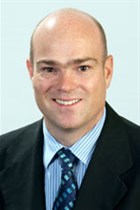
A withholding tax on cross border service fees was proposed in the 2013 Budget which culminated in the introduction of sections 51A – 51H of the Income Tax Act, 1962 (“the Act”). This provided for a withholding tax of 15% on the amount of any service fee that is paid by any person to, or for the benefit of, any foreign person to the extent that the amount is regarded as having been received by or accrued to the foreign person from a source within South Africa.
The withholding tax was initially set to commence on 1 January 2016 but was later postponed to 1 January 2017. The purpose of this tax was to identify and collect revenue from non-residents who provide technical, management or consulting services and earned income from a South African source. It was also aimed at curbing the erosion of the South African tax base.
Treasury recently published the Draft Taxation Laws Amendment Bill, 2016 where it is proposed that the sections in the Act which provide for the withholding tax on service fees be repealed in its entirety with effect from 1 January 2017, that is, the date the tax was meant to commence. The reason provided by Treasury for this change is that service fees to non-residents will now be dealt with through the reportable arrangement regime.
In February this year a list of arrangements was published which required participants to report such arrangements to SARS. Included were arrangements for the rendering of consultancy, construction, engineering, installation, logistical, managerial, supervisory, technical or training services to a resident by a non-resident. In terms of such arrangement the non-resident must be, or must be anticipated to be, physically present in South Africa in connection with, or for purposes of rendering the services. Furthermore, the expenditure incurred or to be incurred in respect of the services must exceed, or be anticipated to exceed R10m. If these criteria are met, and provided that the amounts do not qualify as remuneration for employees’ tax, the arrangement must be reported to SARS.
